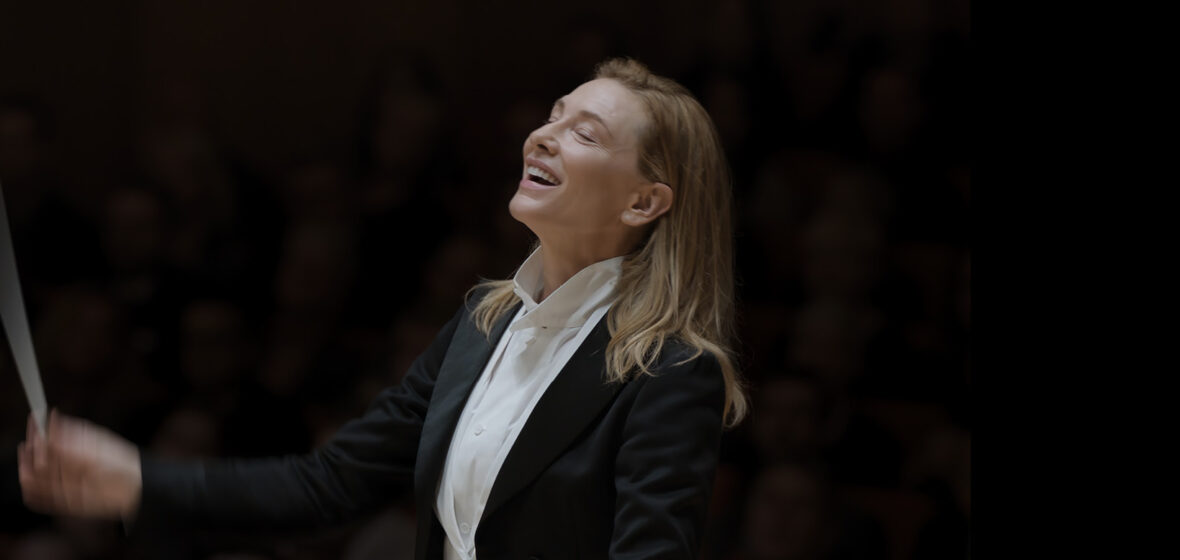There is a grave misconception that Tár is about cancel culture. I heard about this going in and was ready to indulge in this discourse, expecting that, if it was true the film’s theme revolved around modern day witch hunts, there would at least be some compelling nuance. After all, this is a film by Todd Field, the filmmaker behind In The Bedroom and Little Children. Nuance is his middle name.
But it was with a dawning surprise that I realised the only way one could consider Tár to be about cancel culture is if one sees protagonist Lydia Tár (Cate Blanchett) as a sympathetic tragic hero and not, as is the case in the film, a self-centered figure whose downfall is both justified and is cathartic for the audience. Honestly, if your take on Tár is the former, that says more about your relationship to privilege than you care to admit. If the latter, then this film is a pleasure waiting to be enjoyed.
Lydia Tár is a maestro/composer currently enjoying a lucrative residence with the Berlin Philharmonic. She is introduced to us in a Q&A for The New Yorker magazine as the superstar of the world of classical music. Poised and solemn, she answers the questions as if anticipating the audience will be quoting her words for years to come. Everyone listens to what Tár has to say, because no one else is as important as she is.
The plot revolves around Tár’s involvement in rehearsals for a live recording of Gustav Mahler’s Symphony No 5 while she’s also trying to compose a new piece, prepare the launch of her autobiography, and face two big issues. The first is the arrival of a new celloist in the orchestra, which poses a risk to her relationship with her partner, Nina (Sharon Goodnow). The second is the suicide of an ex-protegé, which raises questions about Tár’s bullying nature.
It’s easy to understand why she’s a target. Right at the start she tries to give her students a healthy dose of tough love in class; she perceives this to be inspirational, but obviously no one else does. Maybe back in the day that approach worked on impressionable talents who just needed to face an emotional abyss in order to become artists, but these are modern times, and Tár is not a modern person.
Blanchett embodies the character with so much contained strength I don’t know how she managed to get through the day without chewing the scenery at least once. Her voice is assertive, her poise strong; if you’ve ever been in the proximity of someone who believes themselves to be truly indispensable to society, you’ll recognise Tár as such in Blanchett’s portrayal of her. Blanchett is tremendous at underplaying moments where she doesn’t seem important (usually everything that concerns the feelings of others).
She demotes an old colleague who considers her a friend with the impersonal touch of a callous HR manager firing a new hire. Her every reference to the aforementioned tragic death is followed by a demonstration of her coldness and heartlessness.
And then for a moment it seems she’s quite literally haunted by the prospect of being a caring and altruistic person: in one scene Tár ventures through an unknown and unnerving house just to return a soft toy, and the film edges close to the scary movie genre, so overwhelming does she seem sense of selflessness in this one particular uncharacteristic act.
On a par with Blanchett’s level of skill is Field’s talent for saying a lot with the smallest scenes. He likes to shoot Tár, you can see that. But he also revels in letting her actions be her downfall. In a stroke of genius, he shoots the whole film from her point of view, so that when everything eventually hits the fan, we realise this only when she does. And it’s very effective to witness the ball dropping for a protagonist we thought to be a (flawed) role model.
There is truth in the script and in the message. The ending offers a spectacular and indulgent punchline, but the strength of the film is in the attention to detail. And maybe that’s why film critics have confused that earnestness with endorsement. Field is happy to demonstrate that Tár is constantly in the wrong, even if she doesn’t believe this to be the case. The film is reminiscent of Damien Chazelle’s Whiplash — and it’s curious that Tár has come out at the same time as Chazelle’s new feature, Babylon. Both films represent accurately the oppressive pretension of the music world, and both feature a maestro facing the result of their destructive bully tactics. But, while Chazelle’s ending lacks humanity, Tár offers precisely what Whiplash should have done — a moment of hubris purged and justice achieved.
Verdict: 5 out of 5
For classical music nerds who squirm when someone says “Gustav Mahler’s Fifth”, and cinephiles who wonder, “what would happen if Jean Renoir and Michael Haneke joined forces?”




